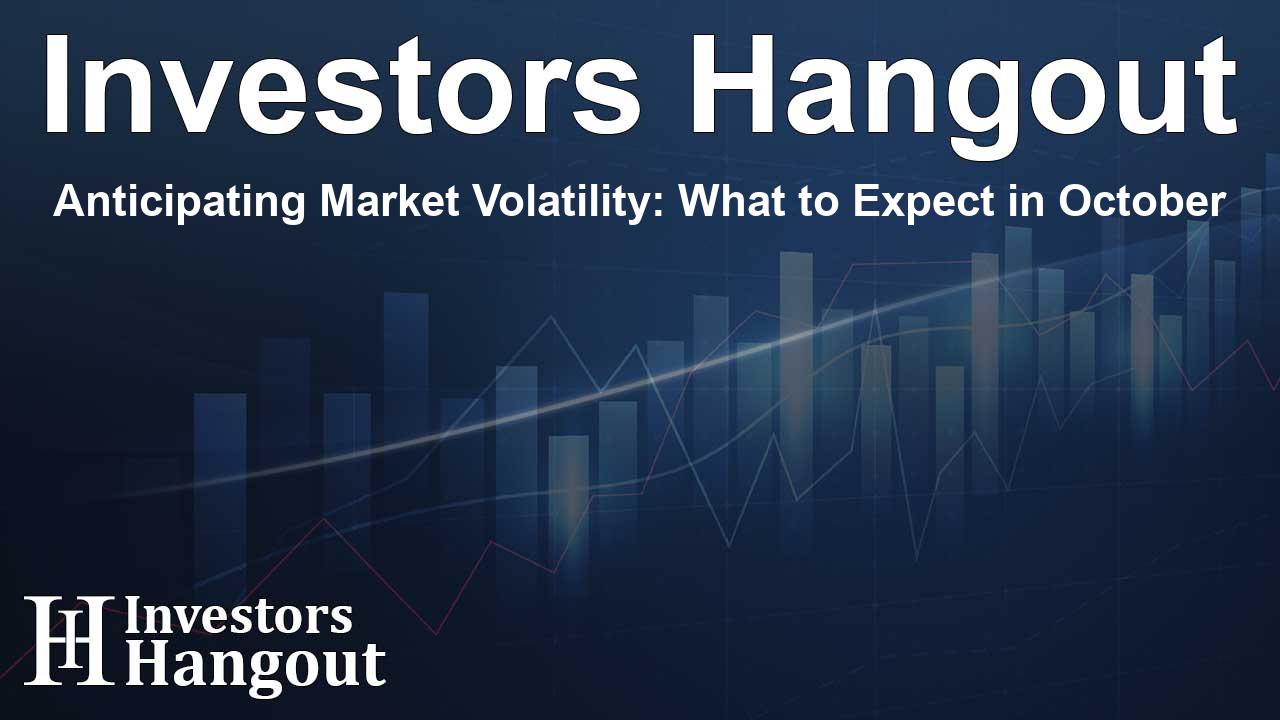Anticipating Market Volatility: What to Expect in October

The Calm Before the Storm: Understanding September's Rally
The markets have experienced a remarkable September, showing the best performance in over a decade. The S&P 500, linked closely to the Vanguard S&P 500 ETF (VOO), has risen by 3.6%, marking a significant upturn in a historically challenging month. Not since 2010 have we seen such robust gains. This year stands out not only due to the percentages but also because of the unusual strength of technology stocks in what is typically a weak period.
Technology Sector's Performance
The Nasdaq 100, represented by the Invesco QQQ Trust (QQQ), has surged by 5.5%, reflecting a strong industry performance. Key players like Apple Inc. (AAPL), Oracle Corp. (ORCL), and Tesla Inc. (TSLA) are driving this momentum, bolstered by advancements in artificial intelligence and favorable Federal Reserve policies. This performance deviates sharply from the long-term trend, where tech stocks often struggle in September, averaging a loss of about 2.2% over the past 25 years.
The Artificial Intelligence Factor
This year's gains have been especially pronounced thanks to the escalating demand for AI technologies, which has buoyed giants like Oracle and Micron Technology Inc. (MU). The market is agog with potential, causing a euphoric atmosphere reminiscent of peak trading seasons rather than typical fall periods.
Preparing for Market Volatility in October
As the euphoria of September fades, Goldman Sachs foresees a stark reversal with increased volatility as October unfolds. Historical data indicates that realized volatility in October tends to be significantly higher, influenced by earnings reports, performance benchmarks, and macroeconomic shifts.
What's Driving October's Volatility?
Factors contributing to this anticipated surge in volatility include pivotal Federal Open Market Committee (FOMC) meetings, Fed announcements, and the Consumer Price Index (CPI) report. Analysts suggest that October earnings season is historically the most turbulent, with many investors pressured to act as they manage their portfolios amid market fluctuations.
The Activity Spike in Stock Trading
Moreover, trading volumes for single stocks tend to peak in October, as traders engage more actively with both shares and options. Goldman Sachs highlights this trend, suggesting that performance pressures compel investors to reassess their strategies.
Identifying Opportunities Amidst Turmoil
While increased volatility is typically unsettling, it also unveils opportunities, particularly within single-stock options, allowing traders to position themselves ahead of anticipated earnings beats or misses. The continued evolution of technology will be a critical indicator of market direction.
Key Events Shaping October
The calendar is dotted with notable technology events that could further influence stock prices. For instance, major industry players will hold significant presentations:
- Oracle Corp. (ORCL) - October 13: Oracle CloudWorld 2025
- Salesforce Inc. (CRM) - October 14-15: Dreamforce + Investor Meeting
- Adobe Inc. (ADBE) - October 28: MAX Investor Q&A
- Intuit Inc. (INTU) - October 27-29: Intuit Connect
- Dell Technologies Inc. (DELL) - October 7: Corporate Analyst Meeting
- Micron Technology Inc. (MU) - upcoming reporting dates that could clarify market direction.
Final Thoughts: Brace for Impact
As September ends, traders must prepare for a potential market shift as we enter October. The dynamics of earnings reports, macroeconomic data releases, and seasonal trends suggest that it will not be business as usual. Investors should remain vigilant and ready to pivot strategies as needed. This October may bring challenges, but amidst them lie opportunities for those willing to adapt and respond to the evolving market landscape.
Frequently Asked Questions
What causes increased volatility in October?
Historically, October has seen a rise in market volatility due to earnings season pressures and significant economic data releases, combined with heightened trading activities.
Which sectors are likely to perform well in October?
The technology sector, particularly companies focused on innovation and AI, tends to attract heightened investor interest during October due to ongoing trends and market shifts.
What are key events to watch for in October?
Catalysts to consider include major earnings reports, FOMC meetings, and corporate analyst presentations scheduled throughout the month.
How should investors prepare for October?
Investors may consider reviewing their portfolios for adjustments, staying updated on economic indicators, and identifying potential opportunities in high-volume stocks.
Is this October likely to be different from previous years?
Analysts believe that the current economic backdrop, including inflationary pressures and market dynamics, may result in a different experience compared to prior years.
About The Author
Contact Lucas Young privately here. Or send an email with ATTN: Lucas Young as the subject to contact@investorshangout.com.
About Investors Hangout
Investors Hangout is a leading online stock forum for financial discussion and learning, offering a wide range of free tools and resources. It draws in traders of all levels, who exchange market knowledge, investigate trading tactics, and keep an eye on industry developments in real time. Featuring financial articles, stock message boards, quotes, charts, company profiles, and live news updates. Through cooperative learning and a wealth of informational resources, it helps users from novices creating their first portfolios to experts honing their techniques. Join Investors Hangout today: https://investorshangout.com/
The content of this article is based on factual, publicly available information and does not represent legal, financial, or investment advice. Investors Hangout does not offer financial advice, and the author is not a licensed financial advisor. Consult a qualified advisor before making any financial or investment decisions based on this article. This article should not be considered advice to purchase, sell, or hold any securities or other investments. If any of the material provided here is inaccurate, please contact us for corrections.
